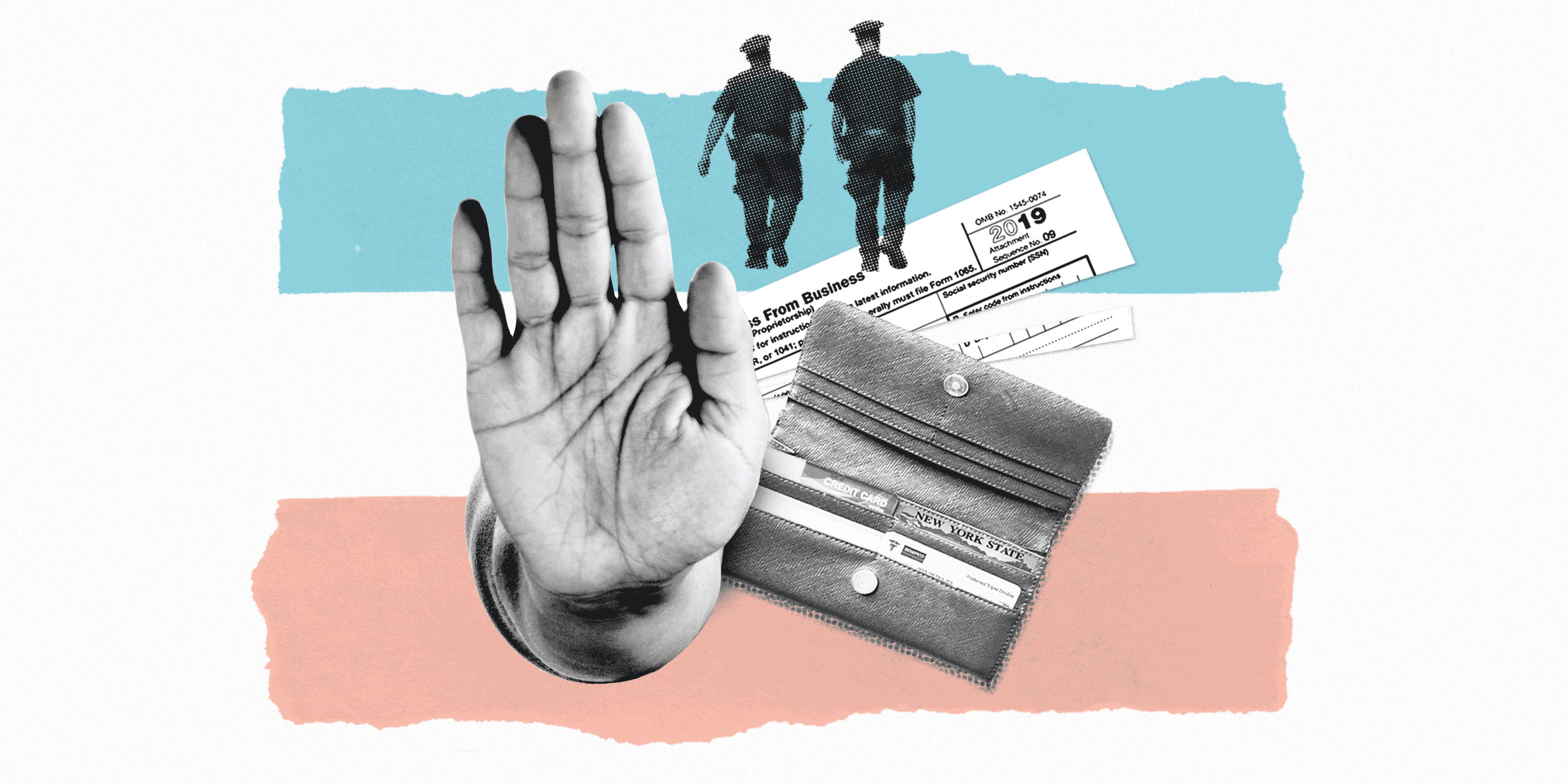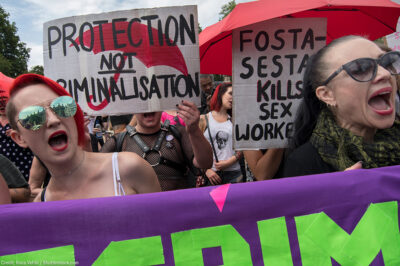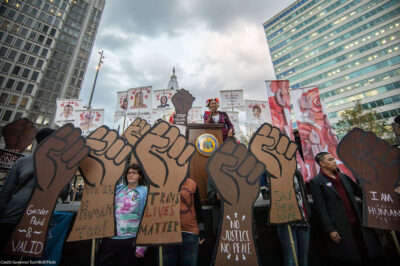It's Time to Decriminalize Sex Work

It's Time to Decriminalize Sex Work
The criminalization of sex work makes sex workers more vulnerable to violence on the job and less likely to report violence. It prevents sex workers from accessing health care and other critical services, feeds an out of control mass incarceration system, and further marginalizes some of society’s most vulnerable groups, such as trans women of color and immigrants.
Sex workers deserve the same legal protections as anybody else. They should be able to maintain their livelihood without fear of violence or arrest, access health care and other services without discrimination, and seek justice when they are harmed. Decriminalization would help bring sex workers out of the dangerous margins and into the light where people are protected — not targeted — by the law.
For key findings on the impacts of sex work criminalization and decriminalization models, read the full brief, “Is Sex Work Decriminalization the Answer? What the Research Tells Us.”
Last updated on July 3, 2023
What does decriminalization mean?
Decriminalization refers to the removal of criminal penalties for the buying and selling of sexual acts, specifically those categorized as prostitution. Decriminalization is not the same as legalization.
Legalization removes criminal penalties for certain incidents of buying and selling of sexual acts, i.e. prostitution, provided the participants comply with relevant regulations.
Decriminalize Sex Work, Protect Black Trans Lives

At least 37 trans people were murdered this year for being who they are. Most were trans women of color, and many were sex workers. Former sex worker and activist Kaniya Walker shares how her experience as a trans woman of color made her an advocate for decriminalization.
Podcast: The Movement to Decriminalize Sex Work

LaLa Zannell, the ACLU's Trans Justice Campaign Manager, joins the At Liberty podcast to talk about the state of the movement for Black trans lives, and why decriminalizing sex work is a meaningful and concrete next step as we continue to fight for true equality.
Featured Stories

How Mastercard's New Policy Violates Sex Workers' Rights
Everyone deserves access to financial services and everyone should be able to make a living – sex workers included.
How Mastercard's New Policy Violates Sex Workers' Rights
PayPal and Venmo are Shutting Out Sex Workers, Putting Lives and Livelihoods at Risk
In order to show a commitment to human rights, civil liberties, and sound technology policy, it’s imperative that PayPal and Venmo provide transparency to their users.
PayPal and Venmo are Shutting Out Sex Workers, Putting Lives and Livelihoods at Risk
Remembrance, Resilience, and Response: Addressing An Epidemic of Violence Against Trans and Non-Binary People
On Trans Day of Remembrance, we should honor those who have been killed and dismantle the structures that cause anti-trans violence.
Remembrance, Resilience, and Response: Addressing An Epidemic of Violence Against Trans and Non-Binary People
Sex Work is Real Work, and it's Time to Treat it That Way
Decriminalization would allow sex workers to maintain their livelihood without fear of violence or arrest, and access health care to protect themselves.
Sex Work is Real Work, and it's Time to Treat it That Way
Reducing HIV Transmission Requires Decriminalizing Sex Work
This World AIDS Day we are fighting to end the criminalization of trans bodies and those living with HIV.
Reducing HIV Transmission Requires Decriminalizing Sex Work
Black Trans Women Are Being Murdered in the Streets. Now the Trump Administration Wants to Turn Us Away From Shelters and Health Care.
Black Trans Women Are Being Murdered in the Streets. Now the Trump Administration Wants to Turn Us Away From Shelters and Health Care.
Deadly Violence Against Transgender People Is on the Rise. The Government Isn’t Helping.
Deadly Violence Against Transgender People Is on the Rise. The Government Isn’t Helping.
The EARN IT Act is a Disaster for Online Speech and Privacy, Especially for the LGBTQ and Sex Worker Communities
Child sexual exploitation is a serious problem that Congress should address. The EARN IT Act is not a solution to this problem.
The EARN IT Act is a Disaster for Online Speech and Privacy, Especially for the LGBTQ and Sex Worker CommunitiesPolicy Recommendations
Advocating for sex work decriminalization means advocating for personal autonomy, LGBTQ+ and women’s rights, decarceration, immigrants’ rights, racial justice, and equal access to the right to life and security. In addition to decriminalization, there are other steps that lawmakers, advocates, prosecutors, and researchers can take to protect the rights of sex workers.




